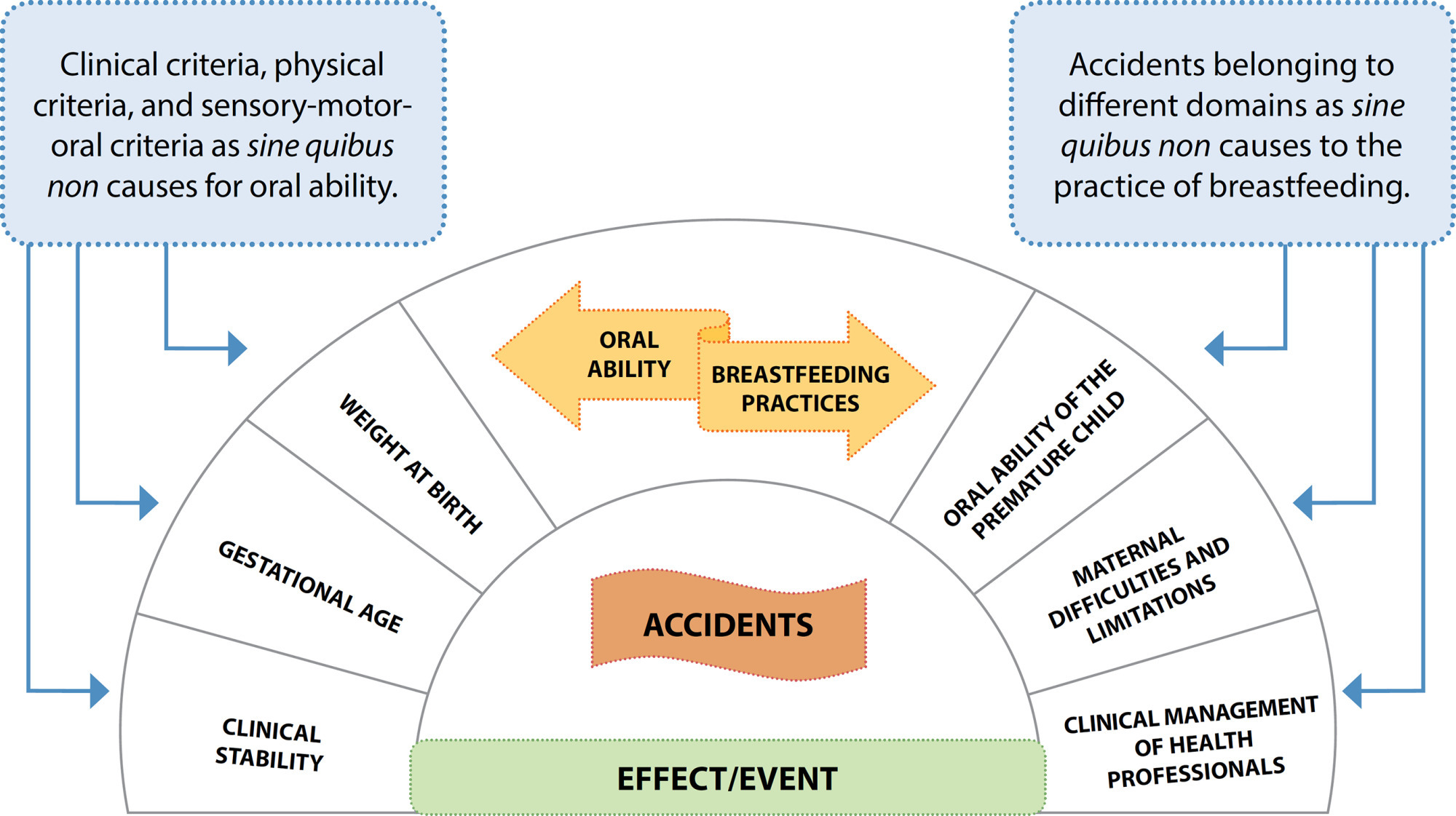-
REFLECTIVE
The oral ability of premature children with regard to breastfeeding under the light of the Theory of Causation
Revista Brasileira de Enfermagem. 2021;74(suppl 4):e20200120
06-04-2021
Resumo
REFLECTIVEThe oral ability of premature children with regard to breastfeeding under the light of the Theory of Causation
Revista Brasileira de Enfermagem. 2021;74(suppl 4):e20200120
06-04-2021DOI 10.1590/0034-7167-2020-0120
Visualizações0Ver maisABSTRACT
Objective:
To reflect on the repercussions of premature babies’ oral ability concerning breastfeeding, under the light of the theory of causation.
Methods:
Theoretical production of reflections based on Hobbes’s theory of causation.
Results:
The study addresses the understanding of oral abilities as the main accident regarding the capacity of the premature newborn, which, coupled with other accidents that make up the other domains, concerning breastfeeding, is an integral cause of the phenomenon.
Final considerations:
Although there are protocols, even if some of them are inconsistent or incomplete, the use of criteria such as weight and gestational age as standards to understand this readiness can still be observed. However, the effect manifests itself even in the absence of these accidents, showing them as partial causes of the phenomenon, while oral ability is, by itself, a necessary cause for this event to take place.

-
RESEARCH
The teaching approach on communicative skills in different teaching methodologies
Revista Brasileira de Enfermagem. 2018;71(5):2447-2453
01-01-2018
Resumo
RESEARCHThe teaching approach on communicative skills in different teaching methodologies
Revista Brasileira de Enfermagem. 2018;71(5):2447-2453
01-01-2018DOI 10.1590/0034-7167-2017-0728
Visualizações0Ver maisABSTRACT
Objective:
to understand, from the perspective of professors, which are the facilities and difficulties in the development of communication skills in nursing undergraduates who experiment different teaching-learning methodologies.
Method:
qualitative research performed with 30 nursing professors from two public education institutions. The data was collected by semi-structured individual interview with guiding questions. We used Bardin's content analysis for the data processing and analysis.
Results:
the development of communication skills is influenced by factors such as the experience of practical activities, students' individual characteristics, use of active methodologies, access to the mass media, relationship of proximity between student and professor, and knowledge of theoretical concepts of communication and nursing.
Final considerations:
there is similarity between the influential factors, however, the use of active methodologies seems to favor the development of communication skills.



